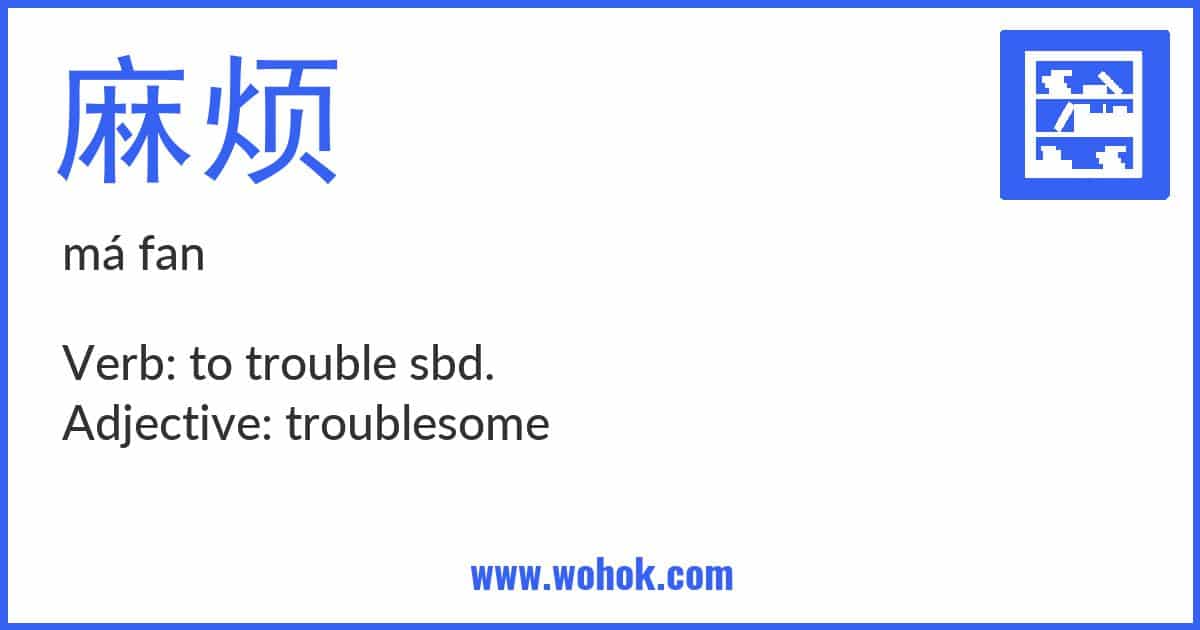The Chinese word 麻烦 can be translated as “trouble”, “bother”, or “inconvenience”. It is often used to express apologies or to request assistance. For example, one might say “很抱歉麻烦您了” to apologize for causing inconvenience to someone, or “能不能麻烦你帮我一下” to politely ask for someone’s help. The word is commonly used in everyday conversation and is an important part of Chinese vocabulary.
Translation
Verb: to trouble sbd.
Adjective: troublesome
Pronunciation
Example Sentences
| Chinese | Pinyin | Engish |
|---|---|---|
| 麻烦你帮我拿一下水 | máfan nǐ bāng wǒ ná yīxià shuǐ | Could you please help me get some water? |
| 我不想麻烦你 | wǒ bù xiǎng máfan nǐ | I don’t want to trouble you |
| 这件事很麻烦 | zhè jiàn shì hěn máfan | This matter is very troublesome |
| 不好意思,我又来麻烦你了 | bù hǎo yìsi, wǒ yòu lái máfan nǐ le | Sorry, I’m bothering you again |
| 请不要麻烦自己 | qǐng bùyào máfan zìjǐ | Please don’t trouble yourself |
| 我们需要你的麻烦 | wǒmen xūyào nǐ de máfan | We need your help |
| 这个问题很麻烦,我们需要更多时间来解决 | zhège wèntí hěn máfan, wǒmen xūyào gèng duō shíjiān lái jiějué | This problem is very complicated, we need more time to solve it |
| 麻烦你告诉我怎么走 | máfan nǐ gàosu wǒ zěnme zǒu | Could you please tell me how to get there? |
HSK
麻烦 is part of HSK Level 4 in HSK 2.0. In the newer HSK 3.0 it is part of HSK Level 3.
Learning Card


